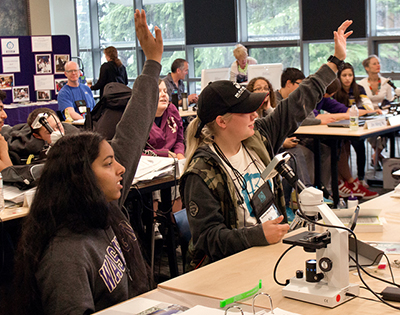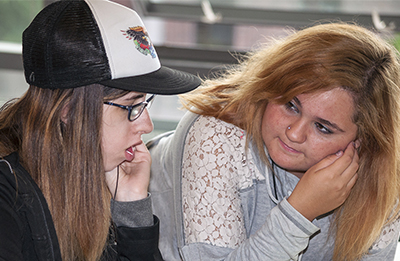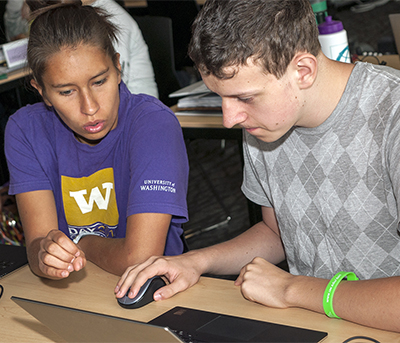Preparing Yourself for College

The first thing I’d recommend to anyone going off to college, especially a fellow student with a disability, is to push limits. The concept might be frightening for someone who has never been inclined to push any limits. I was always someone who put in the minimal effort to pass my classes and rarely stretched beyond my comfort zone in high school—this attitude was a poor fit for college and would have led to a dissatisfying experience had I not tried to branch out.
In the college life experience, you are, ultimately, on your own. You can still have the support of parents and/or caretakers, professors, and the disabilities resources that your campus supplies, but in the end both in classes and out of them you have to learn self-sufficiency. This means keeping a healthy balance of diet, exercise, socialization, and sleep, as well as attending classes and completing assignments. These skills were especially hard to learn as a young adult on the autism spectrum who had always had my parents feeding me and sending me off to school.

Compromises, both with yourself and the people around you, are crucial. I had to learn how to sit down and just do my homework without prompting, because nobody is going to tell you to do your homework or go to class. Even as a college senior, I’ve been struggling with being self-driven to succeed. You will need to advocate for yourself if you have a need for help, because rarely will anyone approach you and ask what you need.
Beyond just classes, your living situation is a part of life that can become a point of conflict. If you’re a freshman living in the dorms, you’re probably not going to get to have a choice roommate or dorm. Even if you don’t become friends with your roommate, the best thing you can do is live in harmony with them; make sure that boundaries and needs are established from the beginning and that you can openly discuss any problems or changes. After freshman year you’ll probably have more leeway in selecting where you live and with whom, which is why it can be important to make friends in your freshman year.

If you are having an issue with your roommate and you can’t easily resolve it, your best bet is to go to your resident advisor (RA), whose job it is to keep the dorms a safe and comfortable place for all residents. Likewise, other issues in your dorms such as noise violations after quiet hours should be reported to the RA—you don’t have to be stressed about getting enough sleep before your early morning test, since you can tell your RA about your neighbor’s loud music. Academics come first and you have as much right as any other student to feel like you’re in an environment conducive to your academic success, mental health, and physical safety.
Making friends can be difficult in college, but having a social group is crucial; my friends are the ones who helped me get through stressful situations, checked up on me if I was struggling, and prompted me to try new things that were fun and engaging even though I was reluctant. However, if you really feel uncomfortable about a situation, don’t let anyone, even a friend, push you into it. Friendship includes boundaries, too. The best way to make friends is to talk to classmates and attend clubs and extracurricular events tied to your interests, and even if those aren’t the friends you keep your entire college career, they can open the way to new possibilities.